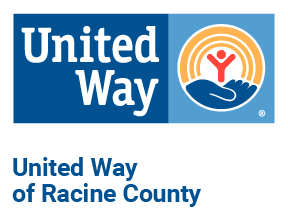
What issue or problem is YWCA Southeast Wisconsin designed to help/figure out/make better?
For nearly 130 years, YWCA Southeast Wisconsin (YWCA SEW) has served our region with a bold mission: eliminating racism, empowering women and promoting peace, justice, freedom and dignity for all We exist specifically to promote equity and eliminate disparities with both direct services and system change work, intentionally focusing on the intersection of racism and sexism — it is our #OneMission.
What does YWCA Southeast Wisconsin do (overarchingly and on a daily basis)?
and on a daily basis)?
On a daily basis, YWCA SEW intentionally integrates our economic empowerment direct services (Opportunity Advancement Centers, Adult Education, Women's professional programming — Dress for Success Racine & Supportive Work Experience, Personal Financial Management) with our racial and gender equity systems change work (workshops, consulting for employers, community groups and other organizations)/ This allows us to facilitate access to opportunity for no- to low-income, under-resourced individuals while simultaneously addressing inequitable systems that disproportionately impact women and/or Black, Indigenous and people of color. All programming is offered through our headquarters in Milwaukee and at our regional office in Racine. Currently, the majority of our programming is offered virtually ; when community health improves and as community needs dictate, we will offer both virtual and in-person programming.
What is YWCA Southeast Wisconsin's impact?
As part of our systems change work, we work with business leaders who have the influence to create change. For example, during our leadership workshop, Ron, a small business VP, shared a story about one of his company's job postings. He questioned, as a result of our training, why the job description required a bachelor's degree for a sales position. He thought it over, talked with the president, and told him, "You know I would not have been hired for this position if it required a degree, as I barely made it out of high school." He was willing to carefully consider how this, and other job descriptions, came to require a bachelor's degree. Ron worked to change the job description and therefore change the expectations for who could be considered for hire. Simply reviewing the status quo of workplace hiring procedure allowed this leader to change things for a better, more inclusive, yet still qualified talent pool for recruitment.
Program participants regularly share how YWCA SEW has impacted them. Chandra, for example, came to YWCA SEW because she had been struggling for years without a high school diploma. She enjoyed going to school until she reached high school, when everything changed. At that time, her mom moved their family with little notice and she was faced with acclimating to a new school. She shared that her difficulty in making friends coupled with working to provide for her household, then becoming pregnant at 16, created an overwhelming situation and she subsequently dropped out. "I just couldn't see a path forward," she recalled.
For years, Chandra bounced from low-wage job to low-wage job, finding her only value and joy in her role as a mother, but always knowing, "I needed to get it together so I could care for my kids like I wanted to." At 24, while pregnant with her fourth child, she made the decision to obtain her High School Equivalency Diploma. She went to a (non-YWCA) program, enrolled and completed the courses. Later, when she applied to community college, she found out that the program she attended for her HSED was not accredited, which made her ineligible for enrollment in post-secondary schooling. She felt frustrated, defeated and embarrassed.
In 2020 Chandra was laid off because of COVID-19. She took a moment to refocus and, with the knowledge of a friend's experience with YWCA SEW's adult education program, decided that the YWCA SEW HSED program was for her. Due to her previous experience with an unaccredited program, she was worried that this program would produce the same result, but Chandra's friend showed her DPI-issued diploma and reminded Chandra that she was now enrolled at Gateway Technical College for nursing, along with a classmate from her YWCA SEW HSED cohort. Chandra put her faith in our program and enrolled.
Chandra shared, "Everyone played an important role in helping me to successfully complete this program. I can admit, I thought this process was going to be dreadful and embarrassing. I thought the teachers would be judgmental and view us as incompetent adults. Fortunately, I was wrong. Each teacher played an important role in helping guide me to earning my HSED." Since graduating in October 2021, Chandra shared that her aspiration is to start a counseling center for women undergoing treatment with cancer. "The NCRC [National Career readiness Certification, a part of the program focused on workforce readiness] acknowledges my competencies and readiness in my desired business and career vision. I believe that preparation is a necessary factor for achieving success, and with HSED and NCRC certifications, I feel like I'm heading in the right direction." We know that Chandra is heading in the right direction. She is currently exploring her post-secondary options with the support of YWCA SEW staff, with a plan to begin her 'next act' of education in fall of 2022.
What does the future look like for YWCA Southeast Wisconsin? How do you envision YWCA Southeast Wisconsin changing or growing to remain impactful and relevant over the next 10 years?
YWCAs have served this nation for over 160 years, so relevancy through changing times is woven into the fabric of our organizations. Given the last two years of the COVID-19 pandemic, we have learned that predicting the future can be ill-advised at best. Because YWCA SEW is built on a mission and values that do not fluctuate, we know we will be part of building a more equitable and just future for this region for years to come.
We will continue to provide mission-focused programming aimed at creating systems change with an intentional focus on the intersection of racism an sexism. Our relevance and effectiveness will be rooted in listening to the communities who are most significantly impacted by racism and sexism, and with their input, design and provide services- on our own and in partnership with others- that resolve inequities.
The current reality today is that Black, Indigenous and people of color, specifically women, are poorly positioned to economically recover from the fallout of the COVID-19 pandemic due to persistent inequities and barriers to economic mobility. These barriers are rooted in things that cannot be overcome individually, like hyper-segregation, unfamiliarity with tools for ongoing professional development and a lack of access to the professional networks and mentoring that open doors to and supports employment success. The COVID-19 pandemic has exacerbated these existing disparities from educational attainment (Office of Civil Rights, Education in a pandemic: The Disparate Impacts of Covid-19 on America's Students" 2021), to healthcare (Center for Disease Control, "Health Equity Considerations and Racial and Ethnic Minority Groups" 2022) to telecommunications (National Consumer Law Center, "Broadband Service is a Racial Equity Priority" 2020).
Using a lens of race and gender equity, our Economic Empowerment programming aims to decrease these disparities through foundational education and ongoing skills development. We daily recognize the fortitude of those we serve to overcome obstacles to their success, however, we recognize the need for those in positions of power and influence to collaborate and open doors to opportunity. This is why our #OneMission is delivered with both direct services to individuals and community-based collaborative work.
Ciara Hartzog is YWCA Southeast Wisconsin's Opportunity Advancement Manager.

Website by: OneEach Technologies
Sitemap | Login